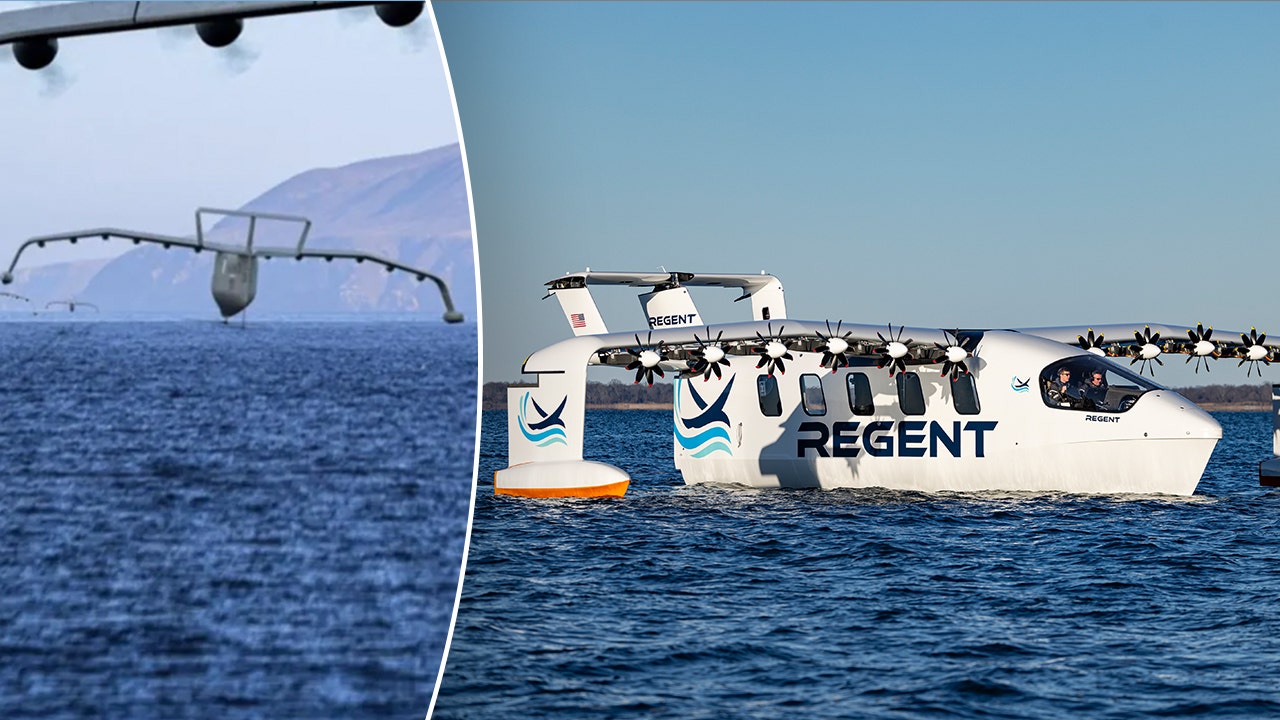Regent’s electric seaglider gets funding boost from Marine Corps Warfighting Lab

Regent’s innovative all-electric boat-plane hybrid project has received a significant boost from the government this week. The Marine Corps Warfighting Lab has extended its collaboration with Regent, awarding them a new contract worth an estimated $10 million. This comes after the successful completion of a $4.75 million contract, highlighting the potential and promise of Regent’s seaglider technology.
The focus of this new phase of testing will be on examining the seaglider’s capabilities for medical evacuation missions. CEO Billy Thalheimer sees this as a crucial step in addressing the evolving nature of global conflict, particularly in the Indo-Pacific region. He believes that there is a shift towards World War II-style tactics and a renewed emphasis on maritime operations, which makes Regent’s technology even more relevant and important.
One of the key advantages of Regent’s seaglider is its ability to travel up to 180 miles at speeds of up to 180mph. It is designed to take off and land on water, eliminating the need for traditional runway infrastructure. The all-electric nature of the aircraft also makes it easier to refuel, as it can be done anywhere with access to electricity, reducing the logistical challenges associated with transporting fuel to remote locations.
Regent’s “float, foil, fly” motto perfectly encapsulates the unique flight path of the seaglider. It starts by floating on the ocean’s surface, then uses hydrofoils to glide over the water before taking off into the air. This earth-hugging flight path allows the seaglider to fly below radar and above sonar, making it difficult to detect by enemy forces.
One of the key missions that Regent hopes to fulfill with their seaglider technology is medical evacuations. The quick turn-around time from floating on the sea to flying in the air makes it ideal for rapid response situations. Regent has already completed successful sea tests in Rhode Island’s Narragansett Bay, showcasing the potential of their innovative technology.
Regent has also submitted its design basis agreement to the Coast Guard for approval, with expectations of receiving the green light next year. The company aims to use their seagliders for resupply and medevac missions in theaters where travel over the sea is necessary.
Overall, Regent’s collaboration with the Marine Corps Warfighting Lab and their innovative seaglider technology represent a significant step forward in addressing the evolving needs of modern warfare. With significant investment from various partners, including 8090 Industries, Founders Fund, Japan Airlines, and Lockheed Martin, Regent is well-positioned to continue pushing the boundaries of maritime operations and defense missions.




